Why Learn German in Germany?
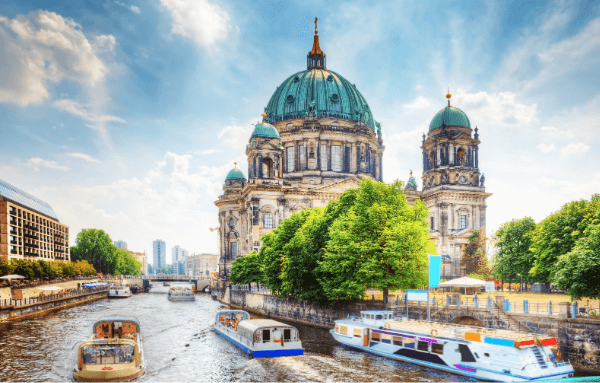
Learning German in Germany offers a unique opportunity for complete immersion in the language and culture. By surrounding yourself with native speakers, you’ll pick up nuances and colloquialisms that you might miss in a classroom setting back home. Moreover, living in Germany allows you to practice the language in real-life situations, accelerating your fluency.
How to Prepare for your German Language Learning Journey
Before embarking on your journey to learn in-country, it’s essential to lay the groundwork:
Basic Knowledge
Familiarize yourself with basic German phrases and grammar. If you have the time, book yourself onto one of our group German programs or for that exclusive start, try a private German course. If you’re tight for time, even apps like Duolingo and Babbel can give you a smattering of language, so you don’t feel completely at sea.
Documentation
Ensure your passport is up-to-date and check with the school what visa you need to stay in Germany.
Budgeting
Plan your finances, including tuition fees, accommodation, daily expenses, and travel. If you give us an idea of your total budget, we’ll reverse engineer a solution that is just right for you.
Research
Let us help you compare and contrast options. Each of our four recommended schools has a number of different course formats to choose from, including group German immersion programs, individual and combined classes, as well as specialist courses for certain age groups and work needs.
Finding the Right German Language School
All the schools we recommend adhere to the same IALC schools quality charter, which is your guarantee of a friendly welcome, ongoing support and help, great teachers, and a positive learning environment where you’ll find other international students of German.
At ILI, we have four destinations in Germany we particularly recommend. How you choose the right one for you is going to depend on a number of factors. Here’s a breakdown of what each location offers:
Berlin

You might like Berlin if you are:
- A young adult (18-30) who thrives in a diverse and vibrant environment.
- Someone who enjoys a mix of history and modernity.
- An individual interested in a bustling nightlife and dynamic cultural scene.
Key Differences:
- Attractions: Rich in historical sites like the Berlin Wall and Brandenburg Gate, along with numerous museums.
- Size: Berlin is the largest city, offering endless opportunities and resources.
- Local Culture: International atmosphere with a blend of various cultures.
- Weather: Mild summers and cold winters, typical of a northern European climate.
Munich
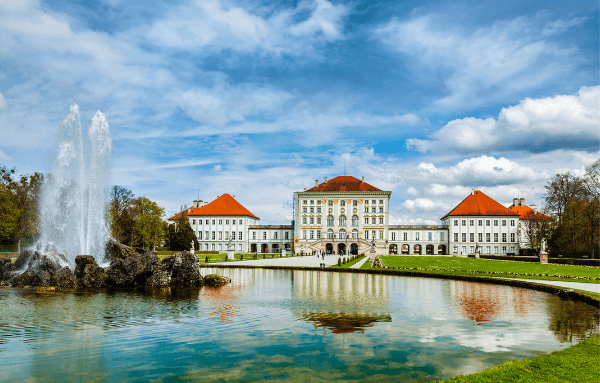
You might like Munich if you are:
- Appreciative of a mix of tradition and modernity.
- Interested in cultural events and historical sites.
- Seeking a vibrant city life with a touch of Bavarian charm.
Key Differences:
- Size: Munich is a large city with a strong cultural identity.
- Attractions: Known for events like Oktoberfest and landmarks such as Nymphenburg Palace.
- Local Culture: Rich Bavarian traditions blended with modern influences.
- Weather: Generally colder with snowy winters, perfect for those who enjoy winter sports.
Lindau
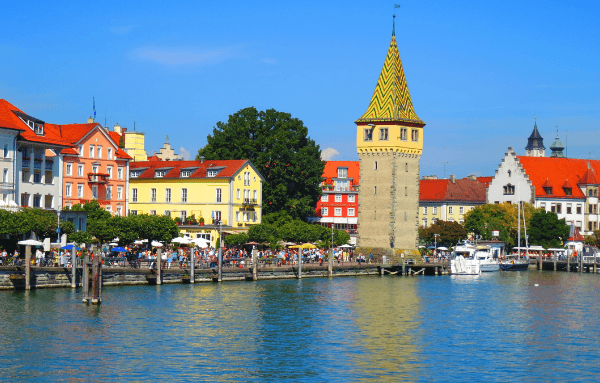
You might like Lindau if you are:
- Looking for a peaceful and focused learning environment.
- Someone who enjoys scenic beauty and tranquil settings.
- Seeking a small-town charm with fewer distractions.
Key Differences:
- Size: Small town, offering a close-knit community feel.
- Attractions: Stunning lake views and alpine backdrop, historical landmarks like Lindau Lighthouse.
- Local Culture: Quiet and serene, ideal for focused study.
- Weather: Mild climate, influenced by the nearby Lake Constance.
Regensburg
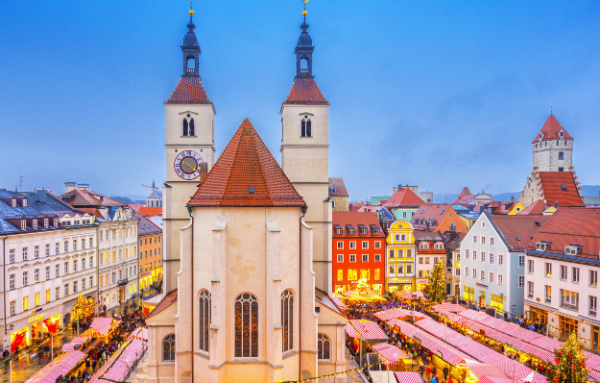
You might like Regensburg if you are:
- University-aged (18-25) or a young professional.
- Interested in medieval architecture and a vibrant student life.
- Looking for a city with a rich historical environment and dynamic cultural activities.
Key Differences:
- Size: Medium-sized city with a strong academic presence.
- Attractions: Well-preserved medieval architecture, ancient stone bridge, and Gothic cathedral.
- Local Culture: A youthful and dynamic atmosphere, influenced by the large student population.
- Weather: Moderate climate, suitable for outdoor activities year-round.
What to Expect When You Arrive in Germany
Arriving in Germany can be both exciting and overwhelming. Here’s what you need to know:
Orientation
Most German immersion schools offer an orientation program to help you acclimate to your new environment.
Accommodation
Options range from student housing to homestays with German families, which can enhance your language learning experience.
Culture Shock
Be prepared for cultural differences. Embrace the opportunity to learn and adapt.
Making the Most of Your Time in Germany
Maximize your learning experience by immersing yourself fully:
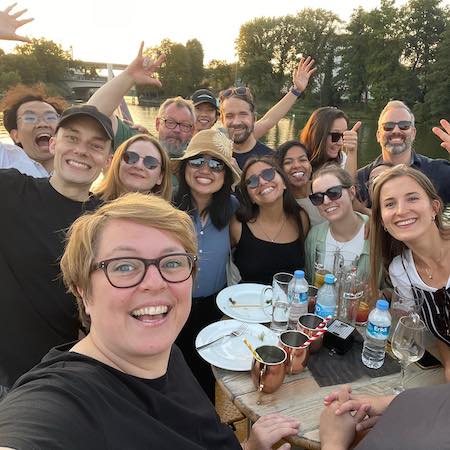
Practice Daily
Use German in your daily interactions, obviously in class, but also in the breaks, at your accommodation, after class and discovering the local neighborhood with new classmates. Try to avoid people with the same nationality as you. It’s hard to stay in German mode when your new best friend is someone from back home.
School Activities
Our German language schools provide daily activity recommendations—usually a mixture of free and paid things to do like eating together, visiting a German pub or beer hall, and trips to museums and art galleries. The benefit of going on an excursion arranged by the school is that the tickets are all organized for you (and sometimes cheaper). You get a guided visit often with one of your teachers or the activity coordinator, who will speak in a way that supports your learning and explain any tricky vocabulary.
Fill in the Gaps with German
That down time where you can’t do yet another conversation, and where you usually head to Instagram, TikTok or Netflix,… do that in German too. TikTok is actually very good at spotting you’re in Germany, and you’ll soon start to get random German posts in there. If you’re old school and like a newspaper or a magazine, go find something you like and just have a go. Understanding even a handful of new words is worth the pain!
The other students also wanting to go out and explore are a great way of giving you instant friends with time on their hands who are equally up for a drink, a bite to eat, or just a walk around together. Sharing your experiences with classroom buddies, like buying things in a shop, ordering Bratwurst in the street, or understanding the instructions on the ticket machine can give you extra confidence at first.
How to Succeed in Your German Language Studies
There is a bit more to learning German in Germany than from the comfort of your own home, or through your local language classes.
Living for a short while in Germany means you’re totally surrounded by language opportunities – whether that’s overhead conversations, interactions with people in shops and cafes, buying magazines, watching TV or going to the movies.
While that’s great from an immersion point of view, be kind to yourself in terms of what you’re going to be able to take away from the experience.
Have an objective, any objective
It could be to collect 100 words of new vocabulary and get each word into a sentence before the end of your trip. Or start to feel more confident using the present and past tenses. Or interact with your server in a restaurant without making a mistake. These are all great learning objectives.
Laugh off your mistakes
If it was easy, everyone would speak German fluently! Languages in general and German in particular is a tricky language to learn and master. It’s often your mistakes that you remember the most. The memory of getting it wrong – and possibly even you feeling a bit awkward about it – often makes a mistake a powerful way to remember the correct version.
Everyone knows you’re learning, so making mistakes is to be expected. The older we get, the more we tend to master other aspects of our lives, so it can sometimes feel uncomfortable to be a beginner, or not fully master our communications in another language..
If you can let go of those worries, and laugh in the face of your linguistic ambiguity, you’ll not only enjoy the experience more, but you’ll also lock in your learning and progress faster.
Keep going
You’ll have good and bad days learning and speaking German. If you’re thinking of studying German in Germany, you might not be a “little and often” kind of person. You might be more of a “I want to jump levels quickly”.
That’s fine too, but the research evidence seems to suggest that revisiting what you’ve learned, and seeking out ongoing opportunities to use the language is the best way to keep those language skills alive and ready to deploy. So don’t stop once you get back.
Celebrating German Culture
Understanding German culture is an integral part of your language learning journey:
Festivals
Participate in local festivals like Oktoberfest and Christmas markets to experience German traditions.

Cuisine
Try German dishes such as bratwurst, sauerkraut, and pretzels. Learning to cook German food can also be a fun way to practice the language.
History and Art
Visit museums, historical sites, and art galleries to deepen your appreciation of Germany’s rich cultural heritage.
World Affairs and Politics
Germans are often very interested in world affairs and politics. They will enjoy comparing and contrasting different models of government with you. They might have lots of questions, or if you ask the right ones, you’ll be able to listen to them talking about Germany and European politics.
Product Comparisons
Germans are also often very clued up on technology and the comparability of different makes and models—whether that is cars, hair dryers, or food products. You can get into all sorts of conversations about the best things to buy.
The Environment
Germans also love a good chat about the environment and how to make the planet a greener and more natural place. It’s a good opportunity to learn more about their ideals, and maybe take away new ways to save energy and care for nature.
Staying Motivated and on Track during your German Immersion
Maintaining motivation throughout your immersion program can be challenging but is essential for success:
Track Progress
Regularly review your progress and celebrate milestones.
Stay Connected
Keep in touch with fellow students and join study groups for mutual support.
Take Breaks
Balance your studies with leisure activities to avoid burnout.
Learning German in Germany is a rewarding experience that offers both linguistic and cultural enrichment. By choosing the right German immersion school and fully embracing the German way of life, you’ll achieve fluency faster and enjoy the journey along the way. Whether you’re studying German in Germany to enhance your career prospects, travel with ease, or simply for personal growth, this guide will help you navigate your path to success.
